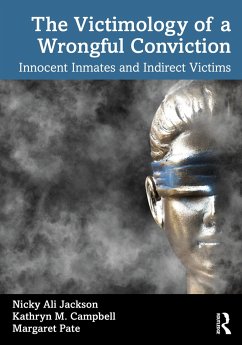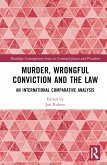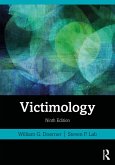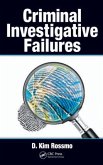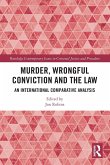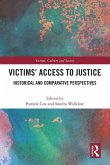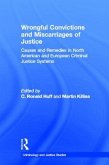This book exposes the myriad of victims of wrongful conviction by going beyond the innocent person who has been wrongfully incarcerated to include the numerous indirect victims who suffer collaterally. In no way overlooking the egregious effects on the wrongfully convicted, this book widens the net to also examine consequences for family, friends, co-workers, witnesses, the initial victims of the crime, and society in general-all indirect victims who are often forgotten in treatments of wrongful conviction.
Utilizing interviews of exonerees and indirect victims, the authors capture the tangible and intangible costs of victimization across the board. The prison experience is examined through the lens of an innocent person, and the psychological impact of incarceration for the exoneree is explored. Special attention is given to the often-ignored experience of female exonerees and to the impact of race as a compounding factor in a vast number of miscarriages of justice.The book concludes with an overview of the victimization experiences that follow exonerees upon release.
Unique to this book is its interdisciplinary approach to the troubling subject of wrongful conviction, combining perspectives from a number of fields, including criminal justice, criminology, victimology, psychology, sociology, social justice, history, political science, and law. Undergraduate and graduate students in these disciplines will find this book helpful in their respective areas of study, and professionals in the legal system will benefit from appreciation of the far-reaching costs of wrongful convictions.
Utilizing interviews of exonerees and indirect victims, the authors capture the tangible and intangible costs of victimization across the board. The prison experience is examined through the lens of an innocent person, and the psychological impact of incarceration for the exoneree is explored. Special attention is given to the often-ignored experience of female exonerees and to the impact of race as a compounding factor in a vast number of miscarriages of justice.The book concludes with an overview of the victimization experiences that follow exonerees upon release.
Unique to this book is its interdisciplinary approach to the troubling subject of wrongful conviction, combining perspectives from a number of fields, including criminal justice, criminology, victimology, psychology, sociology, social justice, history, political science, and law. Undergraduate and graduate students in these disciplines will find this book helpful in their respective areas of study, and professionals in the legal system will benefit from appreciation of the far-reaching costs of wrongful convictions.
In The Victimology of a Wrongful Conviction: Innocent Inmates and Indirect Victims, Drs. Nicky Jackson, Kathryn M. Campbell, and Margaret Pate powerfully position the experiences of people who are wrongly convicted as "victims" of a criminal legal system in desperate need of reform. The authors take their analysis one step further, and extend the victimology framework to the other victims of wrongful convictions - the families of the wrongly convicted, the original survivors of actual crimes, and society at large. Grounded in qualitative research and in victim theories, this book is a welcome and compelling addition to the wrongful conviction literature.
Jessica S. Henry, author of Smoke but No Fire: Convicting the Innocent of Crimes that Never Happened
The subject matter of The Victimology of a Wrongful Conviction: Innocent Inmates and Indirect Victims is an important contribution to the study of wrongful convictions. Professors Jackson, Campbell, and Pate have undertaken a tremendous task - to situate the experiences of the wrongly convicted as victims, and their families as secondary victims of a state crime - and they have succeeded. They have also forced readers to confront the realities that exonerees and their families experience - enduring great emotional, psychological, and financial hardships, similar to other crime victims. This comprehensive, academic analysis of the victimology of a wrongful conviction, is a must-read for innocence scholars and victimologists.
Mark Godsey, author of Blind Injustice: A Former Prosecutor Exposes the Psychology and Politics of Wrongful Convictions
Jessica S. Henry, author of Smoke but No Fire: Convicting the Innocent of Crimes that Never Happened
The subject matter of The Victimology of a Wrongful Conviction: Innocent Inmates and Indirect Victims is an important contribution to the study of wrongful convictions. Professors Jackson, Campbell, and Pate have undertaken a tremendous task - to situate the experiences of the wrongly convicted as victims, and their families as secondary victims of a state crime - and they have succeeded. They have also forced readers to confront the realities that exonerees and their families experience - enduring great emotional, psychological, and financial hardships, similar to other crime victims. This comprehensive, academic analysis of the victimology of a wrongful conviction, is a must-read for innocence scholars and victimologists.
Mark Godsey, author of Blind Injustice: A Former Prosecutor Exposes the Psychology and Politics of Wrongful Convictions

